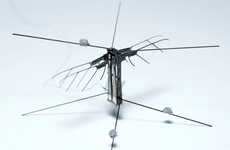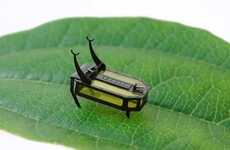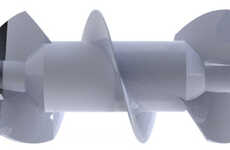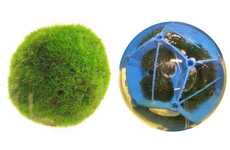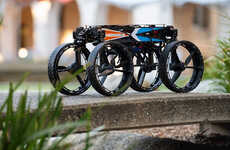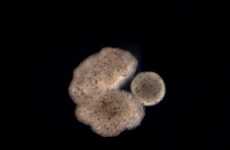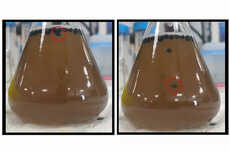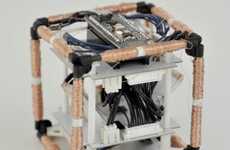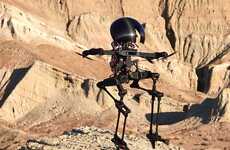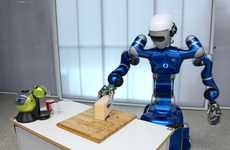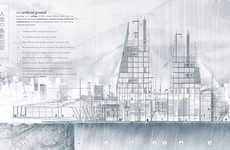
This Bio-Bot Can Be Steered and Directed Using Light
Rahul Kalvapalle — March 17, 2016 — Tech
References: news.illinois.edu & gizmag
A group of scientists and engineers over at the University of Illinois have developed innovative bio-bots -- miniature biological robots that are capable of being steered using light.
Each of these miniature bio-bots is constructed from a special 3D-printed hydrogel skeleton that is surrounded by a ring of bio-engineered muscle tissue grown from mouse cells. This muscle tissue is treated with a gene that causes it to contract when it is exposed to a specific wavelength of blue light.
The use of light to direct the robots has a number of advantages. For one, light will not damage the biological tissue like electrical currents can. Moreover, the use of light allows for more precise and targeted steering. Ultimately, these bio-bots are helping advance the cause of controllable biological robots that could play a huge role in medicinal interventions going forward.
Each of these miniature bio-bots is constructed from a special 3D-printed hydrogel skeleton that is surrounded by a ring of bio-engineered muscle tissue grown from mouse cells. This muscle tissue is treated with a gene that causes it to contract when it is exposed to a specific wavelength of blue light.
The use of light to direct the robots has a number of advantages. For one, light will not damage the biological tissue like electrical currents can. Moreover, the use of light allows for more precise and targeted steering. Ultimately, these bio-bots are helping advance the cause of controllable biological robots that could play a huge role in medicinal interventions going forward.
Trend Themes
1. Bio-bots Steerable by Light - Advances in controllable biological robots through the use of light steering technology.
2. Hydrogel Skeletons for Bio-bots - Innovative 3D-printed hydrogel skeleton technology for building miniature bio-bots.
3. Bio-engineered Muscle Tissue for Bio-bots - Development of bio-engineered muscle tissue grown from mouse cells for constructing miniature bio-bots.
Industry Implications
1. Robotics Industry - Potential to revolutionize the robotics industry by introducing new ways to control and steer biological robots.
2. Biotechnology Industry - Opportunities for innovative breakthroughs in biotechnology research and development using bio-bots.
3. Medical Industry - Potential for bio-bots to play a significant role in medicinal interventions and improve medical procedures.
0.7
Score
Popularity
Activity
Freshness


